BESSEMER SOCIETY DINNER
SENSOR CITY, LIVERPOOL, MAY 10TH 2018 LIVERPOOL OPEN TO THE WORLD
Speakers
Sir Robin Saxby: Founding CEO of ARM Holdings; Angel investor, mentor
Jon Hague: Vice President for Science and Technology, Unilever Homecare Divsion
Iain Hennessey: Clinical Director of Innovation at Alder Hey Children ‘Living’ Hospital
The Evening
Sensor City is an iconic building designed to reflect the idea of a sensor chip. It is an incubator and open access laboratory for sensor related start ups, which is linked to the University of Liverpool and Liverpool John Moores University. The building was officially opened only earlier this year. The Bessemer Society was the first time they had organised a dinner. It worked perfectly as the pictures below illustrate. Nearly 40 attended the dinner, which was lively with very high quality talks by our three speakers and a good debate afterward.
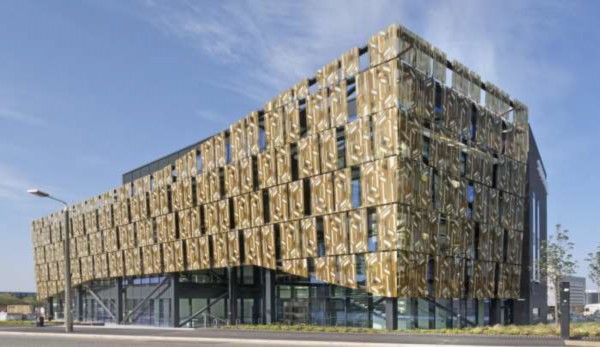
Sensor City, Liverpool
The Setting
The picture below is taken on Sensor City’s Terrace outside where the dinner was held. A perfect summer evening with light breeze, perfect for pre-dinner drinks.
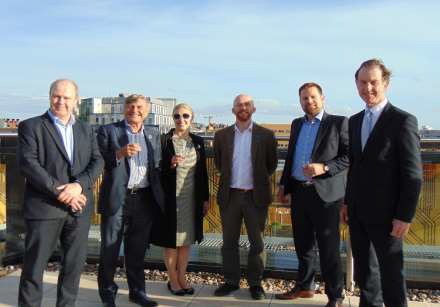
L to R
Jon Hague, Unilever
Sir Robin Saxby, Investor and Entrepreneur
Sarah Brearley, Mewburn Ellis
Iain Hennessey, Alder Hey Hospital
Jeremy Webster, Mewburn Ellis
Alex Stewart, Bessemer Society
The dinner was held in an airy, bright room with views out over the city. An invigorating setting with glimpses of Wales beyond the Mersey in the bright evening light.
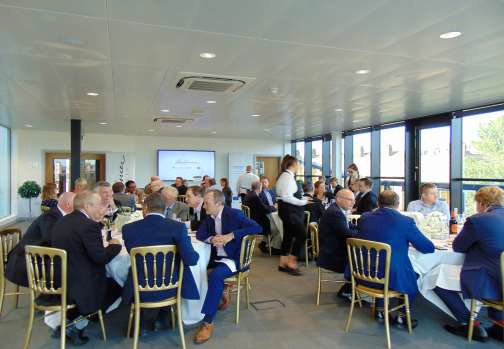
View of dining area, the first time a dinner has been held at Sensor City!
Self-Intros
The following each gave approximately a 2-min intro to their USPs, progress and status:
Tim Harper, Serial entrepreneur; Founder of G2O Technologies Ltd, which is developing a graphene enabled membrane for water treatment; office is based in Manchester. Chair of the Northern branch of the Bessemer Society.
Darren Andrews, Founder of Cobalt Light, which is based in Oxford, but Darren is based in Liverpool. Cobalt Light makes detection equipment using novel spectroscopy. The company was acquired by Agilent last year for £40mil.
Keith Errey, Serial entrepreneur who co-founded Isansys Lifecare which makes body monitoring systems using wireless sensors. This will one day be standard in hospitals, but new technology takes time for general adoption. Keith is a founding member of the Bessemer Society and is based in Oxford.
Sameer Kothari, CEO of Zilico Technologies, based in Manchester, which manufactures and sells a cervical cancer diagnostic system. This year it signed a major collaboration with a strategic partner in China. Sameer is a founding member of the Society.
Erik Cox is a co-founder of DeHeat based in the Wirrall. DeHeat is developing Graphene- based metamaterials with a fractal microstructure for solid-state cooling devices which ‘capture’ heat.
Sam Cockerill, Founder and CEO of Libertine FPE, which is developing a novel piston engine design that has a particularly good application in converting waste heat to power. The company is based in Sheffield.
Nigel Pickett, Founder and CTO of Manchester spinout, Nanoco Technologies, which operates a manufacturing facility in Runcorn. Nanoco is the leading supplier of Chromium Free Quantum Dot materials. It is listed on the AIM.
Edward Pyzer-Knapp, is head of AI and Machine Learning at IBM UK. He is based at STFC Daresbury which houses Hartree, a high performance computing and data analytics research facility. Ed’s team of around 25 are doing amazing work in a range of applications.
Gina Czerneki is an artist, materials innovator, and entrepreneur, who has developed a bio- degradable coffin using an Award winning eco material. This was the surprise entry for the evening. Gina is based in Liverpool.
Iain Hennessey – Alder Hey NHS Trust
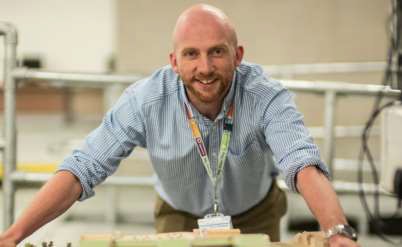
Alder Hey is one of the largest specialist children’s hospitals in the country. It moved from its former site to a park and brand new building in 2015, the design of which Iain said has
“Ferrari” status in the NHS. Innovation is central to the way the hospital operates, led by an Innovation Team of which Iain is the leader.
A Victorian painting
Iain described how Alder Hey had its roots in a Victorian poorhouse. He contrasted the terrible conditions and child mortality of the Victorian period when 50% died before their 10th birthday with today. In particular, he used the image of a painting by the Victorian painter, Fildas, of a sick child. He could see from the medical instruments by the child’s bedside how little the doctor had to treat the child. He explained how the picture helps him reflect on the relative ease with which doctors can now treat the most feared diseases, and yet nevertheless, in a hundred years from now, they may think how relatively little hospitals had to treat illness, bearing in mind there is still great frustration felt within the medical profession that there is much they still cannot cure.
The Living Hospital Concept
The vision for Alder Hey is to be a “living hospital brought to life by technology” which operates with the same functions as a brain, a sensory system and a heart. He described it as “weaponising” how the hospital treats disease.
As a centre for innovation within the NHS the hospital engages with many centres of technology, especially locally. It has currently collaborations with Sensor City and the STFC Hartree Centre at Daresbury trialling new ways to manage patient data using machine learning techniques and AI. Intriguingly he described how some of this work is carried out in a 1000sqm underground “secret laboratory” for co-creating children’s health technology.
Call for help
At the end Iain put out a “call for help” to Bessemer members to help Alder Hey harness technologies that are not classically allied with healthcare.
Jon Hague – Unilever
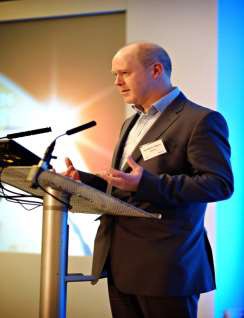
Jon is Vice President for Science and Technology in Unilever’s Homecare Division and previously Head of Open Innovation. He did such a good job the title no long exists since it is now embedded in the culture.
Jon is active in Liverpool as Chair of the Innovation Board of the Local Enterprise Partnership and as a member of the LEP Board. It was partly due to the Board’s efforts that funding was made available to establish Sensor City as a digital hub.
Victorian innovation
Child mortality was incredibly high in Victorian times, one reason being due to poor sanitation. Soap for example was very poor quality. William Lever and his brother James teamed up with a chemist in
Bolton, and invented a process to make soap using palm oil, which was much cleaner, amenable to fragrancing and much more appealing! They also gave their soap memorable names, such as ‘Lifebuoy’ and ‘OMO’ generating brand consciousness, which proved to be their greatest innovation. It also played a major part in reducing infant mortality.
New innovations
The former pioneering ethos to improve sanitation and reduce the amount of household drudge for women is now replaced with the ambition to “make sustainable living
commonplace”. He gave an example of a new washing powder designed for developing countries which reduces the amount of rinsing and thus the number of times women have to collect water from a well.
University link
Unilever’s largest R&D labs are at Port Sunlight which employs 850 people. Links with Liverpool University go back to the early 1900s when William Lever used money won in a court case to donate to a new School of Tropical Medicine, as well as two other new departments. In 2006 Unilever made a joint investment in a new Centre for Materials Discovery at the University, and more recently in a new ‘Materials Innovation Factory’.
Liverpool’s Department of Chemistry is now one of the top two in the country based on the government’s Research Excellence Scores.
Unilever is now supporting the establishment of a Natural Packaging Centre to address the problem of waste disposal. The aim is to establish it in Liverpool taking advantage of the close relationship between Unilever and the University.
Sir Robin Saxby – Start up investor
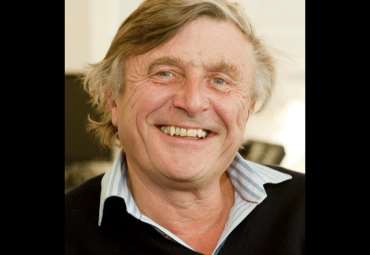
Robin is an inspirational speaker who we’ve been fortunate to attract more than once to a dinner.
As the founding CEO of ARM he spent endless amounts of time on long haul flights building ARM’s position with the major electronic OEMs in Silicon Valley and the Far East. He was a tireless technology warrior, keeping his staff always on their
toes. He had a beguilingly simple vision: to make ARM the standard RISC architecture. One way was through creating a collaborative eco-system for system designers, the ARM Community.
Global challenges
Robin didn’t come to tell us the ARM story however but to give us some insight to the ARM DNA in helping to connect people, start ups, and technology centres. His concern now is more around the global challenges facing the human race. He described how the Bessemer Society helps to understand accelerating technology change and how it can be applied to improving human conditions.
Connecting
Despite the many major challenges in the world, looking back to the Cold War on the other hand there isn’t the sense of potential Armageddon from a nuclear first strike; challenges in a sense are more practical now, including simply lifestyle (obesity, or suicide). Connecting with others is key however. “Think global but act local”.
The Bessemer Society as a connector
As a global connector, Robin was excited about bringing together Sensor City, Unilever, and a leading national hospital, in a connected way. He has linked Sensor City to an activity in Bristol (where we held a major dinner in September) which had resulted in significant grant funding from Innovate UK. He wrote to me afterwards that he thought –
“Joining the Bessemer Society is about joining a community that realises that collaboration can create a bigger prize than going it alone.”
Discussion period
Emma Degg, CEO of the North West Leadership Team (NWBLT), a membership organisation for leading companies in the region, was concerned about a study by Innovate which found that companies in the NW access much less grant funding relative to their contribution to industrial output and that this gap has been widening over the last 5-10 years. It was not that they were less successful in winning bids, but they raised less money per bid. She was interested to receive suggestions about how companies can create coalitions to bid for larger funding, perhaps working with larger companies.
One of our founding members whose company is bringing a novel patient monitoring technology to market, spoke about how important the R&D carried out in large companies like Unilever is in bringing forth valuable solutions. He saw this in line with the Bessemer Society’s desire to see inventions that generate wealth benefiting society.
The Bessemer Society places great store by the role of manufacturing as a means to capture more of the value added in a final product. Robin pointed out that while ARM designed chips, the manufacturing of them had to be understood so that it could support its licensees.
Aldo De Leonibus whose consultancy business, Inventya, has been contracted by Innovate UK to manage their Scale Up programme, pointed out the value of Innovate UK’s s scale up loans. One participant felt that the loan cap of £1mil was too small however for some Bessemer members which may have a burn rate of £1mil a month with less than 150 employees.
China is becoming a growing source of capital for smaller companies several pointed out. This is certainly true for companies in the Bessemer Society. One piece of advice in negotiating with Chinese companies is to keep them keen without giving away control somebody commented.
John Whaling from the Liverpool City Region LEP explained how the city is keen to locate more 5G trials in Liverpool. A consortium led by Sensor City had recently secured funding to test 5G wi-fi in healthcare. He wondered what other ‘verticals’ Liverpool could address using 5G.
One member wondered if a city focus was too narrow, especially if the aim was scale up, compared with the huge scale of markets in China or Silicon Valley. He felt this lack of critical mass was always going to be an issue for the UK. In his case, like many others in the Bessemer Society, it comes back to building bridges with China and Silicon Valley.
Acknowledgements
Sincere thanks to our Sponsors, the Patent Law Firm, Mewburn Ellis LLP, who made the dinner possible.
Mewburn Ellis is a 150 year old Patent Law firm, with offices in Manchester as well as other centres around the UK.

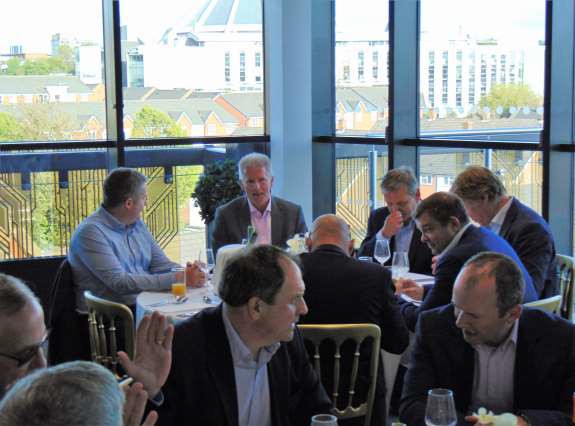
Dinner guests, with a view on to Liverpool Roman Catholic Cathedral behind








